It seems that everyone in the world is using shower gel now. Not me. When I shower, I like to go old-school with a good old bar of soap.
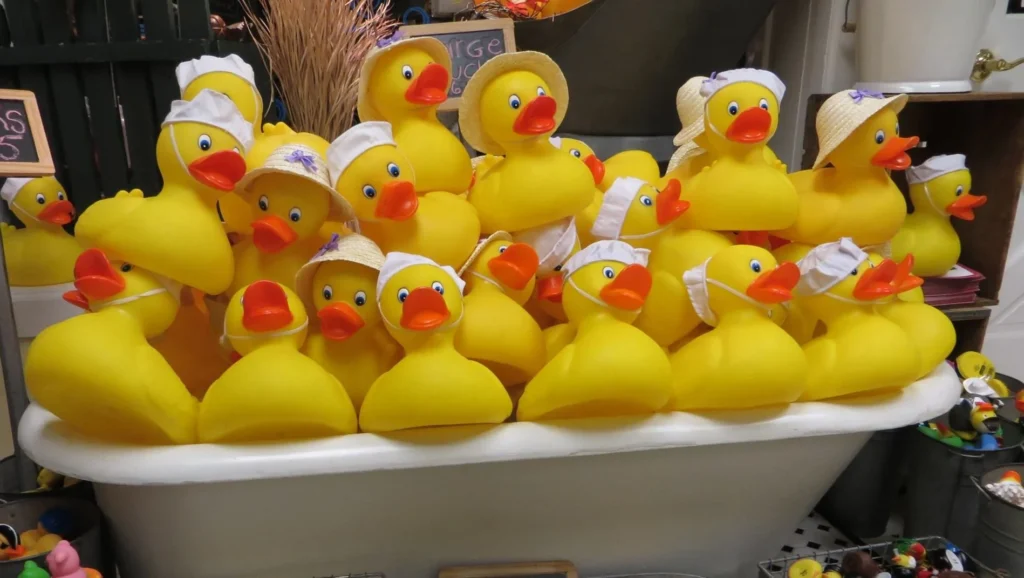
From time to time, our family takes a trip to Port Jefferson, New York, a quaint town in the middle of Long Island’s north shore. There’s a store called The SoapBox that we visit every time. It’s the epitome of what small businesses in America used to be before Amazon and Walmart ruined it. When you walk into her store, there’s a bathtub filled with little rubber ducks you can buy. There are cute displays of antique sinks. And of course, the whole store is filled with displays of all kinds of soaps, both beautiful to look at and wonderful to smell.
Years ago, I stopped using mass produced commercial soap after an incident where I used a bar of gold Dial soap (which I’ve used since I was a kid) and broke out in horrifically itchy hives throughout my body that I had to go to the doctor to fix with antihistamines and steroids. I didn’t put two and two together until years later. Even if the soap says “made in the USA” today, it’s almost certain that they’re sourcing materials from the cheapest bidder in polluted countries like China. Since I switched to better soap, not only have the rashes stopped, my skin feels better than ever.
Here’s the tricky part. If you look at the labels for mass-produced soap like Dove or Irish Spring, most of them say “Made in the USA”. When you look just a little bit closer, you’ll see ingredients like Chloroxylenol, Benzalkonium Chloride and Sodium Laurolyl Isethionate. Look, bio my parents were biochemists, so I’m not one of those people who runs from the names of chemicals I can’t pronounce. And I don’t even blame the chemical companies in China who produce them—I wish there were more companies in the United States and Europe who worked as hard as they do.
But as I’ve said time and time again on this blog, the ones I blame are the executives at companies like Proctor and Gamble and Colgate-Palmolive who reward their employees who blindly source their ingredients from lowest bidders in China. They’re not transparent about their supply chains for a reason: you can bet that most or even all of their raw materials come from polluted, corrupt China. For the past 30 years it’s these big companies who had the power to shape supply chains, and they chose greed. Yes, you can get a bar of soap for 66 cents. But what is the real cost?
Yes, it’s hard (at first) to buy a bar of soap for $8. But the experience of the amazing scents, the thorough clean, the luxurious lather, the long-lasting nature, and the peace of mind knowing that you’re using a product crafted with care and not churned out the cheapest way possible by corporate America.

Here are some of the best you can buy. Big h/t to The SoapBox, where I learned about most of the more luxurious of these brands. If you’re in the Port Jefferson area, I strongly urge you to stop by her wonderful shop and pick up as many of these as you can. If you’re going to buy online, I encourage you to shop at her site directly for your first order, but if you’re so inclined, to click on my links below as well for subsequent orders (I’m a small business that hopes to survive too :)).



Best Hand Soaps Not Made in China
1. Waverly & London Australia – Beach
When’s the last time you actually looked forward to showering? That’s me right now.
Yesterday I bought this soap from The SoapBox. It’s made in Australia and made with all-natural ingredients like palm oils, shea butter, and essential oils.
The owner told me that their most popular scent was “Beach”. I was skeptical at first, but one whiff and it was like I was transported to a warm, clean ocean on a sunny day. I can’t quite put my finger on what the fragrance is exactly—it’s a wonderfully light, slightly flowery, subtle scent that I literally can’t put down without taking a few whiffs.
According to their Web site, Wavertree and London, the largest artisanal soap makers in Australia, make their soap using Italian soap milling machines that are similar to the ones used to produce fine Swiss chocolate. The result is a bar that lasts a very long time and produces a creamy lather and because it’s triple-milled, all impurities are removed and the soap is dense, uniform, and smooth.
Other than Beach, there are over 30 other scents you can choose from, all equally intoxicating. If you’re having a hard time deciding, get this 8 bar sampler that has their most popular scents.
2. Nesti Dante – Cipresso
While the Waverly & London Beach was the one that I eventually picked, a close second was this Cipresso-scented bar of soap from Nesti Dante. Nesti Dante has been made in Italy since 1947.
Their origin story is fascinating. The founder, Nesti Dante, was a young man riding his bicycle in Florence in the days after World War II. He was on his way to the meat market to buy meat but crashed his bike and got a flat tire. By the time he reached the meat market, all the meat was gone, but the butcher decided to give him some of the waste fat, telling him that if he mixed it with soda he could make soap. He started creating soap for family and friends and soon found great demand for his soap in war-torn Italy where materials were scarce.
Today, his second and third generations are continuing his legacy. They produce their soap using a process called saponification, which is a traditional boiler cooking method that’s much more expensive and time-consuming than the usual method but yields results that are far superior, pure, natural, and 100% biodegradable.
What I admire most is that they probably could have sold out to a mass producer, but they continue to produce their soap with the pride and skill of their founder. In a world where giant companies are dumping the cheapest products on the masses so that their investors can get richer and richer, it’s refreshing to see an old school company that has maintained its pride in craftsmanship.
Cipresso (which smells like a forest and uses actual extract from real cypress trees) is my favorite scent, but if you’re on the fence you can pick up an assortment.
3. Pré de Provence – Milk
Pré de Provence is made in France by French artisans. And yes, it’s actually made in Provence in the southern French countryside using time-testing methods from artisans that still take pride in their craft, not a factory churning out mass quantities of the soap equivalent of Soylent Green.
It’s milled not three times, but four times, which results in a uniform, smooth, and long-lasting soap free of impurities. It’s great for sensitive skin and has a dizzying array of scents, all of which sound and smell amazing.
Their most popular scent is their Milk Soap Bar, which has a light clean smell that’s appropriate for both men and women. It lasts a long time and is gentle on the skin and produces a luxurious, creamy lather.
4. Michel Design Works – Honey Almond Scent
Michel Design Works is a company based in Katonah, New York that makes soap and other bath and body products. The company was founded in 1987 by Deborah and Bruch Michel, and went on to be a strong, recognizable brand.
In November 2021, they brand was sold to a Private Equity firm, which is usually the kiss of death for a brand. Investors who know and care nothing about a brand’s customers will start asking questions like, “why are you still making things in Europe when you can the same workers and raw materials in China for a tenth of the cost and pocket the difference as profit?”
What is it with American companies? I wish they would learn from European companies and take a little pride in themselves instead of selling out to the first vulture capitalist that waves a big check at them.
It appears that the private equity firm is already cutting costs. Prior to the acquisition, Michel Design Works had a wonderfully detailed Web site that told its brand story and what inspired Deborah and Bruce to create the products they did. After the acquisition their domain redirects to this page on “Stonewall Kitchen” (a name their private equity came up with to try to be consumer-friendly) which relegates the “story” of Michael Design Works to two sentences that an AI could have written.
So far, it appears that Michael Design Works is still producing its hand soap out of Sussex, England. Because it’s been an iconic brand for over 30 years and in many ways set the bar (no pun intended) for other artisanal soap companies, I’ll keep it as a recommended option. But keep an eye out for the investors to start cutting corners while looking to cash in on the brand equity that this company had built for 30 years. When you see that happening, run.
5. Dr. Bronner’s Pure Castille Bar Soap – Lavender
I’d seen Dr. Bronner’s for years, but didn’t really dive into its history until I wrote my article on best NMIC hand sanitizers. I love how on their site they’re transparent about where their ingredients are sourced from, and I love their commitment to fair trade practices, equitable supply chains, and their commitment to “organic” not as a marketing buzzword but in actual practice.
I am positive that over the years Dr. Bronner’s has likely been approached by companies like Unilever or P&G to acquire it and then abandon all of its principles, cheapen its production, and milk its loyal customers dry. It’s downright amazing to see that not only have they NOT sold out, their company continues to be run by the Bronner family and continues to enjoy success to the tune of over $170 million a year.
6. Amish Farms Original Recipe All Natural Soap Bar
It’s scary that no one thinks about this (least of all our government and corporate leaders), but China is now in a position where they wholly control the supply chain to entire sectors of manufacturing. I’m not just talking clock radios, I’m talking electronic parts, medical equipment and supplies (remember nurses using garbage bags for PPE in the first few weeks of COVID) and even medicine.
The CCP could—and in some cases already is—easily hold the United States hostage. Saying something bad about the way The Party does things? Okay, we’ll just stop producing this iPhone part or that antibiotic, and we’ll see if you still feel that way in the 10 years it’ll take you to restart your own manufacturing.
The one group of people in the United States who will be completely immune to extortion like this are the Amish. They’re the ones who have been smart enough to continue to be self-sufficient and self-sustaining. Did an EMP just go off? While everyone’s Teslas have become giant paperweights, their horse and buggies will still work just fine.
Amish Farms Soap, based in South Dakota, uses an old Amish family secret recipe that was handed down for generations (it once used animal fat and tallow, but now uses vegetable oils and all natural ingredients). It’s all natural and chemical free.
To be clear, it doesn’t look like this is an actual Amish-run business (To experience that I would STRONGLY suggest you take the family to Lancaster County in Pennsylvania to meet actual Amish—not the tourist traps but actual businesses like Old Windmill Farm).
That said, I appreciate that this company embraces Amish techniques and principles in creating their product. When you look at the ingredient list, you see things like Olive Oil, Coconut Oil, and Shea Butter, not whateverizide whatevericone whateverephan.
7. Noble Formula
This unscented soap, which contains all-natural ingredients including Zinc and Emu Oil, is widely talked about on Reddit for relieving skin conditions such as itching, redness, flaking, and irritation. Reviews on both Amazon and Reddit share stories of how it helps to clear acne and control dermatitis, eczema, and psoriasis.
As someone who in the past has suffered from skin conditions (in retrospect, probably mostly brought upon by using mass produced soap, lotions, and sunscreens), I appreciate soap like this that doesn’t boast about how luxuriously creamy their lather is or how exquisite their scent is, but simply about how it cleans your skin. Imagine that.
8. Best Soap for Men: Honest Amish or Doctor Squatch
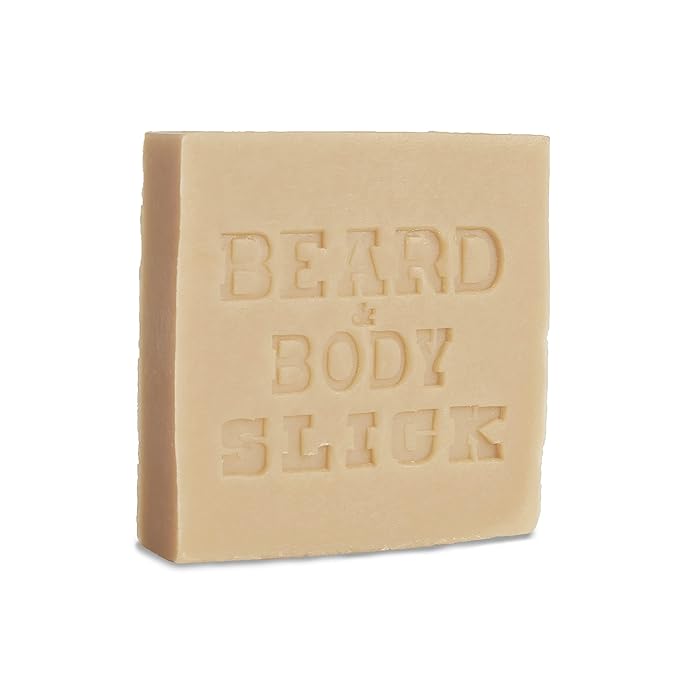
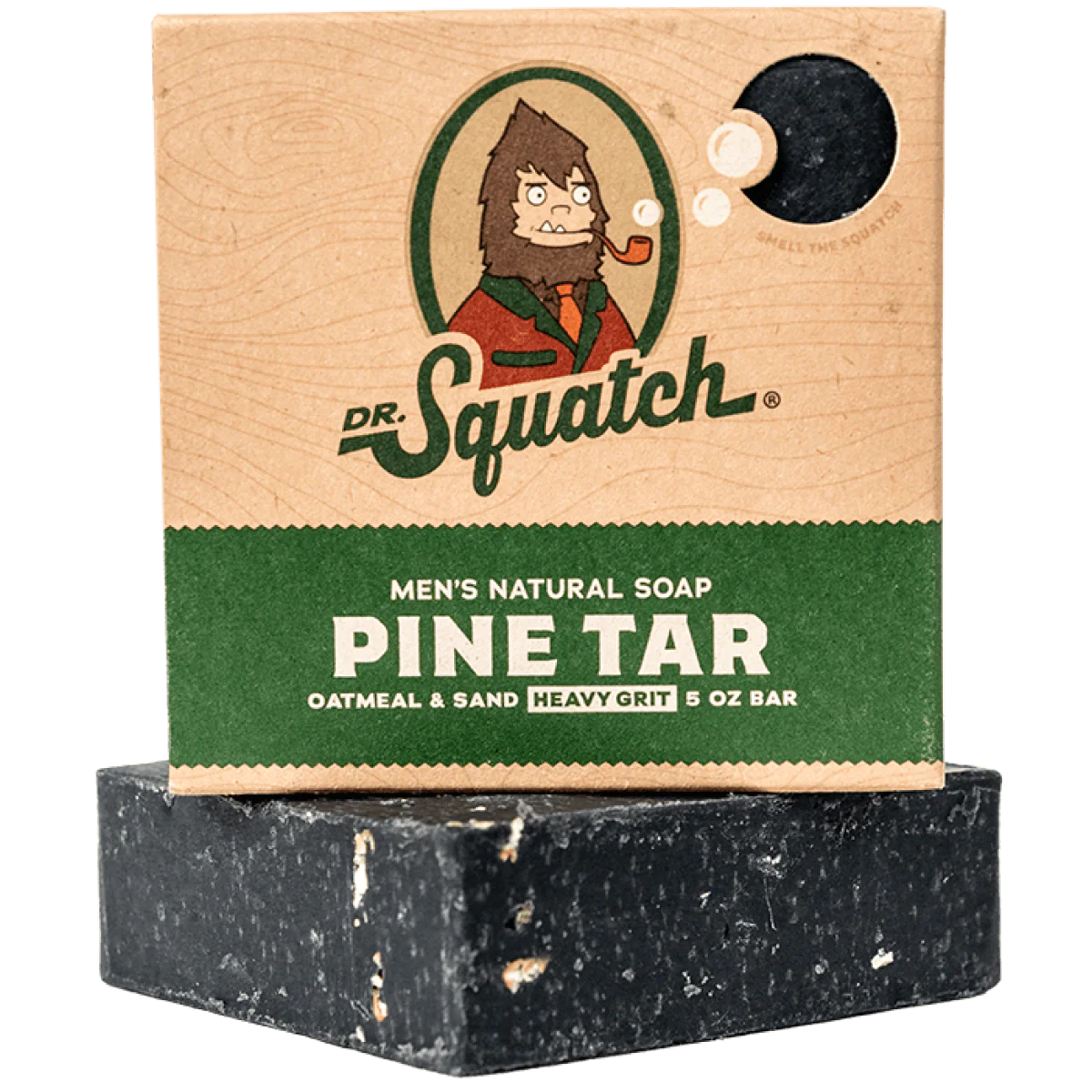
Okay, most of the soaps above are decidedly for women, although as a man I’m not ashamed to admit that sometimes I like smelling flowers and fruit during my ablutions.
But in those times when you want to embrace your manly side—there’s just something off about having a big lumberjack beard and lathering it up with rose and hibiscus. Enter Honest Amish (also not really Amish) and Dr. Squatch. These brands are both made in the USA from natural ingredients and have loyal followings among those with nice healthy T levels.
9. Kirk’s Gentle Castille Soap
If America is ever to return to her former greatness, it will start with stories like Katherine and Molly Oliver.
Kirk’s Soap was founded in 1839 by its founder James S. Kirk (not to be confused with James T. Kirk). As with many wildly successful businesses it started in upstate New York, once the thriving center of manufacturing. It was founded with the philosophy that everyone deserves access to natural cleansers—something even more relevant and critical today than it was 200 years ago.
In 1929, Proctor & Gamble acquired Kirk’s soap. As almost always happens when a big company acquires a small company, the big company drains all of the life out of the small brand. As P&G brands like Ivory and Old Spice Soap get mass produced, a brand like Kirk’s was tossed aside.
In a genius move, Rich Oliver purchased Kirk’s Soap from Proctor and Gamble in the early 2000s, who were likely all too happy to get rid of it (companies usually just kill brands that they acquire so they won’t become future competition, but Rich Oliver must have made them an offer they couldn’t refuse).
His daughters Katherine and Molly now run the company as co-CEOs. The business media reports their purchase as “rebranding to appeal to millennials”, but such reporting completely misses the point. What Rich, Katherine, and Molly did was revive a great brand that corporate greed had swallowed, spit out, and left for dead.
Ironically, with all the “advancements” in soap over the last 200 years (usually in the form of using chemicals to make production cheaper), Kirk’s is largely unchanged from what made it great in the first place. It uses 100% premium coconut oil and isn’t packed with fragrances that often cause even more irritation. If you have sensitive skin and don’t need something as radical as Noble for your day-to-day use, this is the one.
Incidentally, it was on Kirk’s site that I learned what “Castille Soap” is. All it means is that it’s a natural soap from vegetable-based materials like coconut, which is full of healthy fats. The technique for making Castille Soap started in the Middle East, but made its way to Castilla, Spain where it first became widely popular.
Conclusion
Bar Soap is really a reflection of every other personal care product. Most of them will probably say “Made in the USA”, but the reality is that the manufacturer likely sourced all of its ingredients from the absolute lowest bidder. In the last 30 years China has set the (low) bar for what it means to be a low bidder. Bribe your American handlers, maybe not with a stack of cash but with the promise of whirlwind profits for the next quarter. Cheat on testing so that you barely pass. Trick the public into thinking that the raw materials you produce are equal in quality to materials that are sourced sustainably and fairly.
Sadly, most of our fellow citizens will continue to buy the 66 cent bar of soap and pat themselves on the back for how smart a consumer they are (and never thinking critically about why their back itches so much more now than it used to).
Do you know of other soaps made with minimal or no ingredients from China? Please share it in the comments!
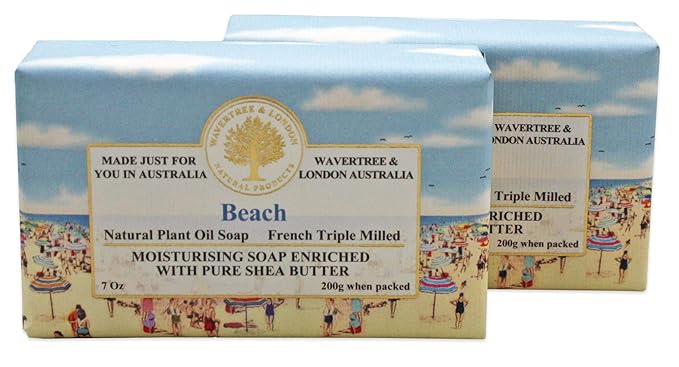
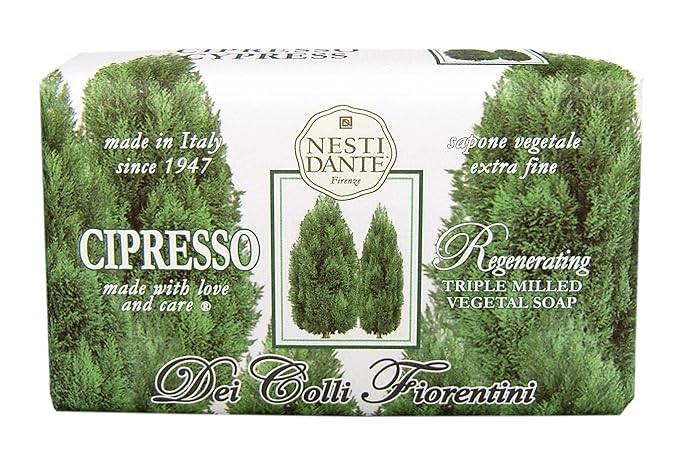
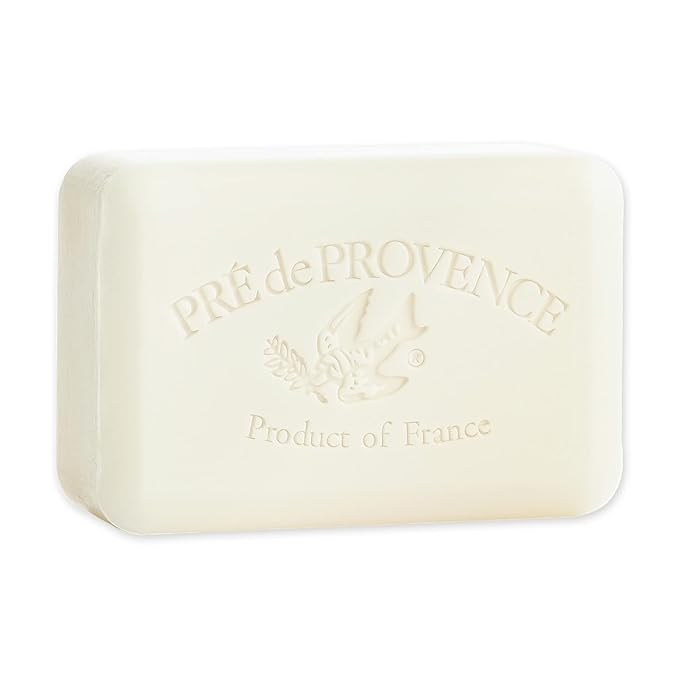

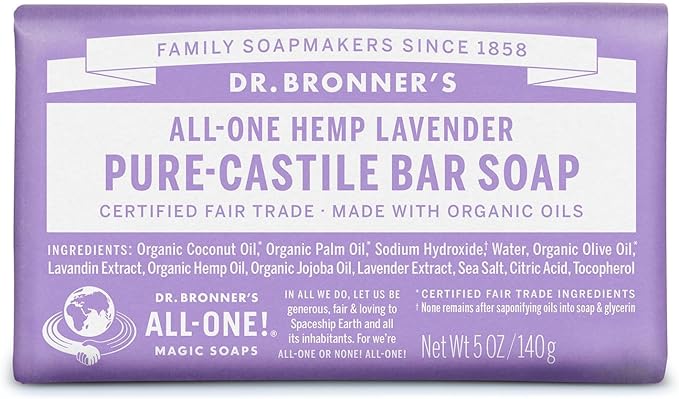
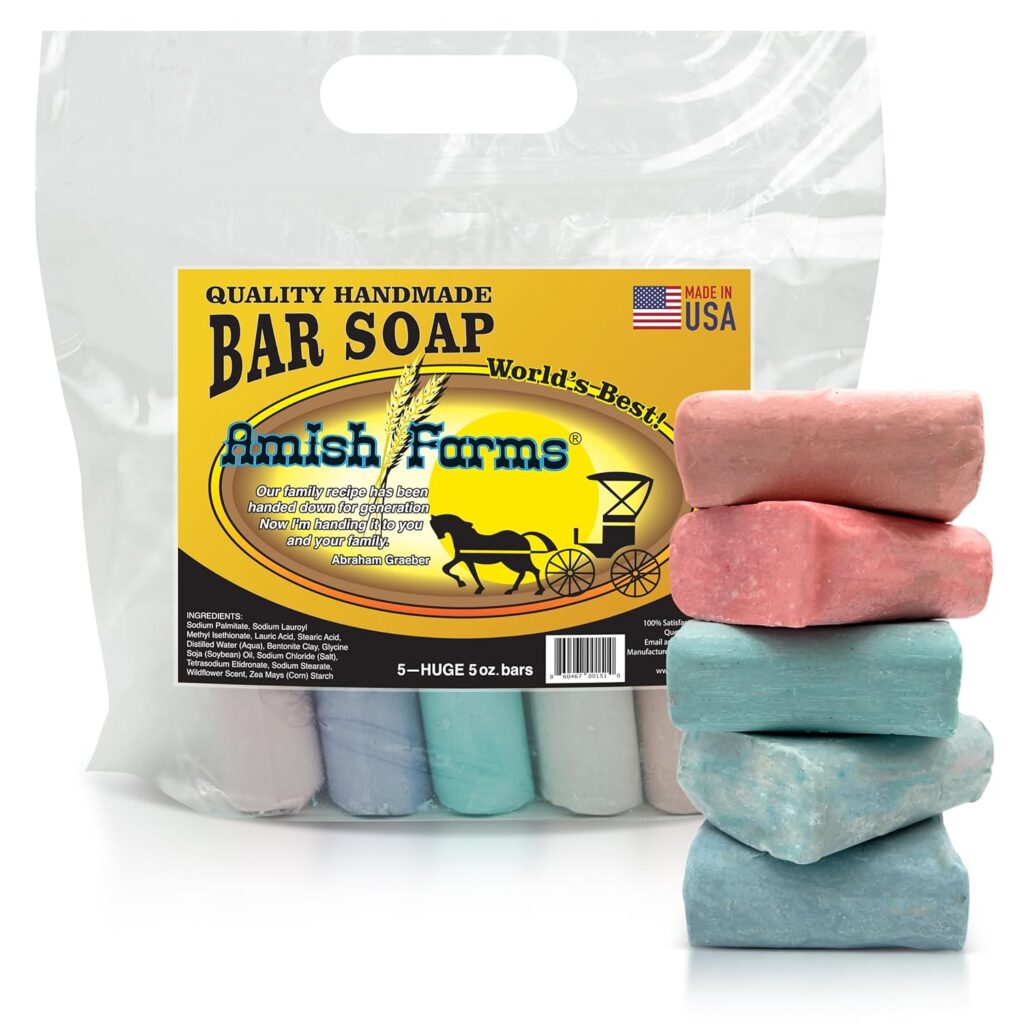
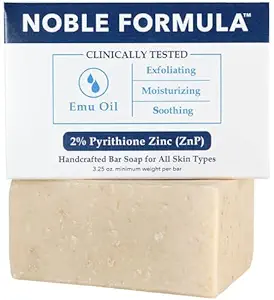


In many Western countries you’ll also find people who live of making handcrafted soap with natural ingredients.
Others give lessions on how to make it. This started with the esoteric wave of the 1980s but today they’re all on the internet. You’ll also find them on special markets and fairs
I really forgot a make which is so common in Germany you just don’t think of it: Speick. They’re an older company in natural cosmetics and all products are made in a single plant in the south of Germany. In the past, their products were sold in pharmacies and drugstores, today you’d use their website speick.de which offers a shop finder and an online store. Alternatively, you can get their stuff via sanoverde.de